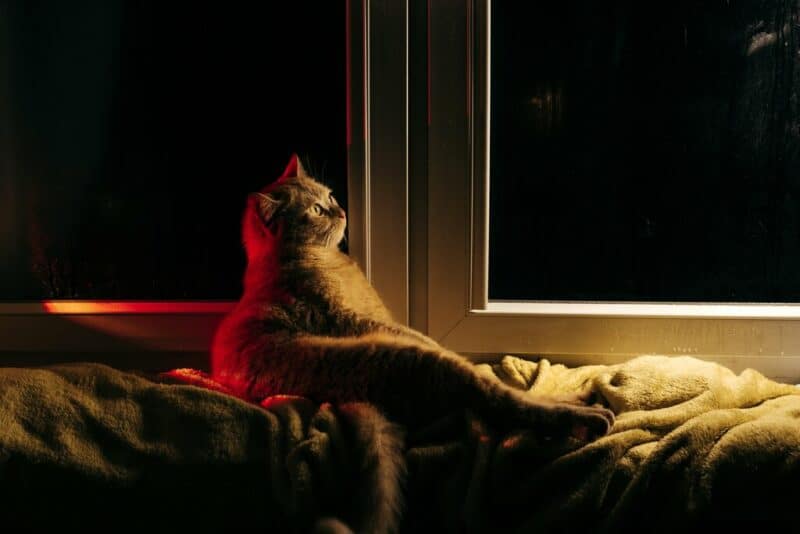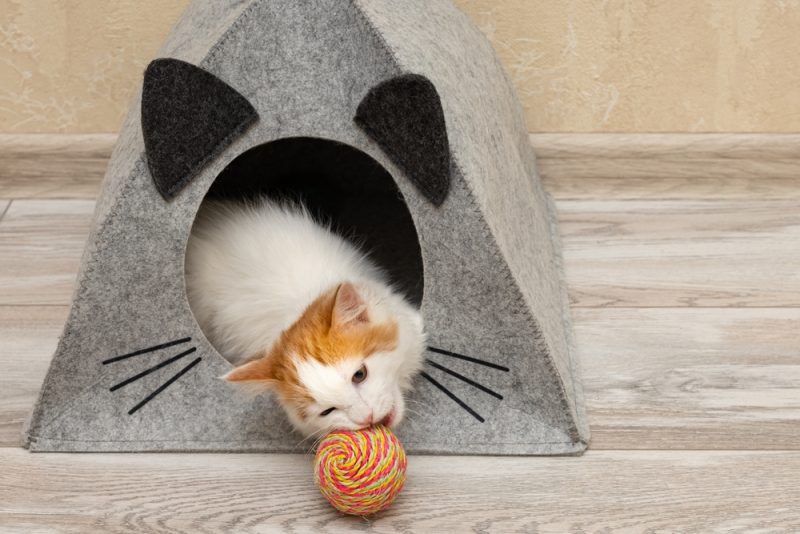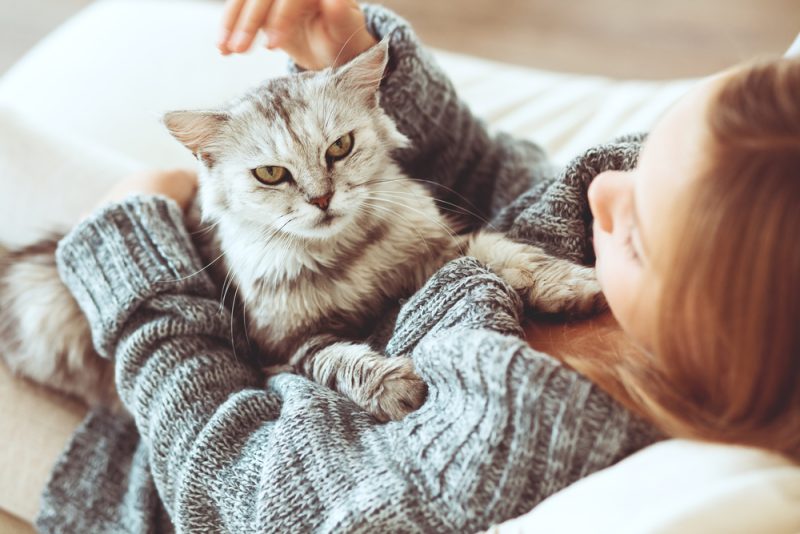Cat owners want to do everything they can to ensure their cat is comfortable, safe, and happy. Some owners who know that their cats wake up during the night to play, hunt, or move around the house wonder if it’s a good idea to leave lights or night lights on for their cats. Some people have doubts.
However, cats’ eyesight and visual abilities are very different from humans, and they can see well in the middle of the night as long as there is a little light. Such, While there is no reason to leave the lights on for healthy cats, it may be beneficial for some cats, including those with certain visual impairments.


cat vision
Cats have excellent eyesight. They have a wider field of vision than humans, which allows them to see what’s going on around them. It is also great at spotting or identifying any movement. Although they can’t perceive as much detail as humans, they are really good at night vision. This is thanks to the reflective layer behind the eyes.
This layer reflects the light that first passes through the eye through the retina. This allows cats to utilize small amounts of light, allowing them to see more efficiently in very dark conditions.
In the wild, cats use their excellent night vision to observe prey, combining it with an excellent ability to detect movement when hunting small animals. Despite the fact that cats do most of their hunting at night, they are not completely nocturnal. Because they are near crepuscular, they are most active at dusk and dawn, which is also the time when their prey is most active.
Unfortunately for owners, this means that our cats are most likely to have a burst of energy when the sun sets and again when it rises, and this is what causes our pet cats to react when the lights go out. That’s why they tend to wake up.

4 reasons why you shouldn’t leave the lights on
Wild cats are crepuscular. They are most active at dusk and dawn, but domestic cats don’t have to hunt or forage for food, so they can be encouraged to live as many hours as their owners. And there are several reasons why you might not want to leave the lights on at night for your cat.
1. Reduce wild playfulness
Cats become more active when it gets dark outside. While this is natural, it can also be unpleasant for people living with cats. Cats can see perfectly well with less light, but leaving the lights on can make them more rowdy and more agitated.
2. Set a routine
If your cat is used to having the light on at night and does not sleep during the night, you will be less inclined to change this. This doesn’t just mean one or two sleepless nights. If that happens, your cat will likely develop a habit throughout the night.
Whether it’s walking up and down the stairs, taking advantage of frequent scratching opportunities, or anything else, your entire home will be exposed to your cat’s nocturnal whims.

3. Can be moved visually
Cats don’t need lights on at night. Although you can’t see in complete darkness, you can see in almost any amount of light, such as moonlight from outside or the glare of a streetlight outside your window.
4. I won’t disturb you
Even if it’s just a cracked light under a doorway, it can be enough to illuminate an otherwise dark room. The extra light, combined with the noise your cat makes from being awake and active, means they’re less likely to enjoy a proper night’s sleep.



If you want to leave the light on
Very young kittens may be distressed when they are first separated from their mother and littermates. It’s best to leave your new kitten in low light for the first few days until they settle in.
Also, if your cat has poor eyesight, it’s a good idea to leave a light on so your cat has extra light to help him get around.
5 tips to keep your cat quiet at night
Some cats are noisy at night even when the lights are off. Here are some tips to help keep your cat quiet at night so the rest of your house gets a good night’s rest.
1. Stay active during the day
Despite their reputation as low-maintenance pets, cats require daily physical exercise and mental stimulation. Keeping your body and mind active during the day will ensure that you are tired enough to sleep through the night. Do this consistently to establish a routine that your cat can get used to. Cat TV, toys, music, training, tower climbing, and puzzles are great ways to keep your cat active.

2. Providing a comfortable resting place
Some cats are comfortable anywhere. Some people have very specific requirements, and if you don’t meet those requirements, it won’t work. Give your cat a comfortable bed and blankets, keep them out of drafts, and place them in a comfortable elevated position.
3. Provide peaceful toys
Night play is natural for cats, and it is difficult to completely prevent it. However, you can make sure your cat has enough toys to play with safely. No ball is completely silent when rolling on hard floors or bouncing off walls, but consider toys such as mats or silent balls.

4. Set a routine and stick to it
Create a routine by setting meal times and bedtimes for your cat. You can change the time slightly, but sticking to a similar routine will help your cat get into the habit of going to bed at the same time every night.
5. Avoid playing games right before bed.
Avoid playing with your cat right before bedtime, and try to feed your cat dinner at least an hour before you want it to go to bed. This will promote peace of mind and help you sleep better.



conclusion
Cats can see well in very dark places, even if the only light is moonlight coming through a window or a streetlight. Therefore, there is no need to keep the lights on at night. In fact, doing so may encourage your cat to run around, play, and make noise.
Developing consistent lifestyle habits, such as a set dinner time and lights out time, will help you feel more at ease.
Featured image credit: Mookmixsth, Shutterstock




